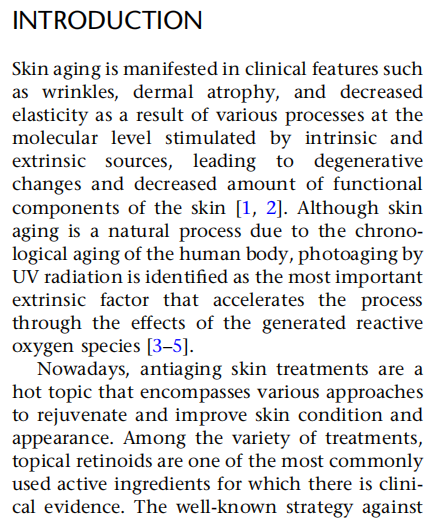
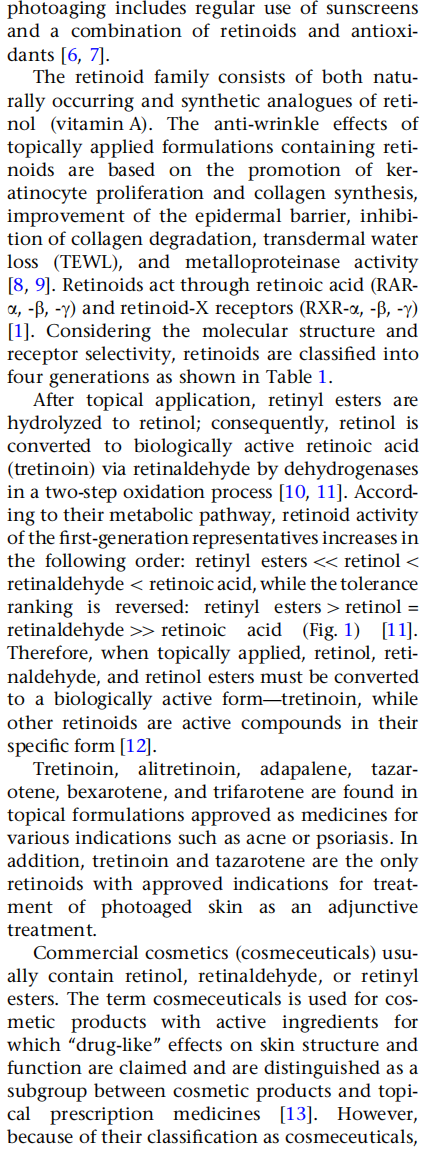
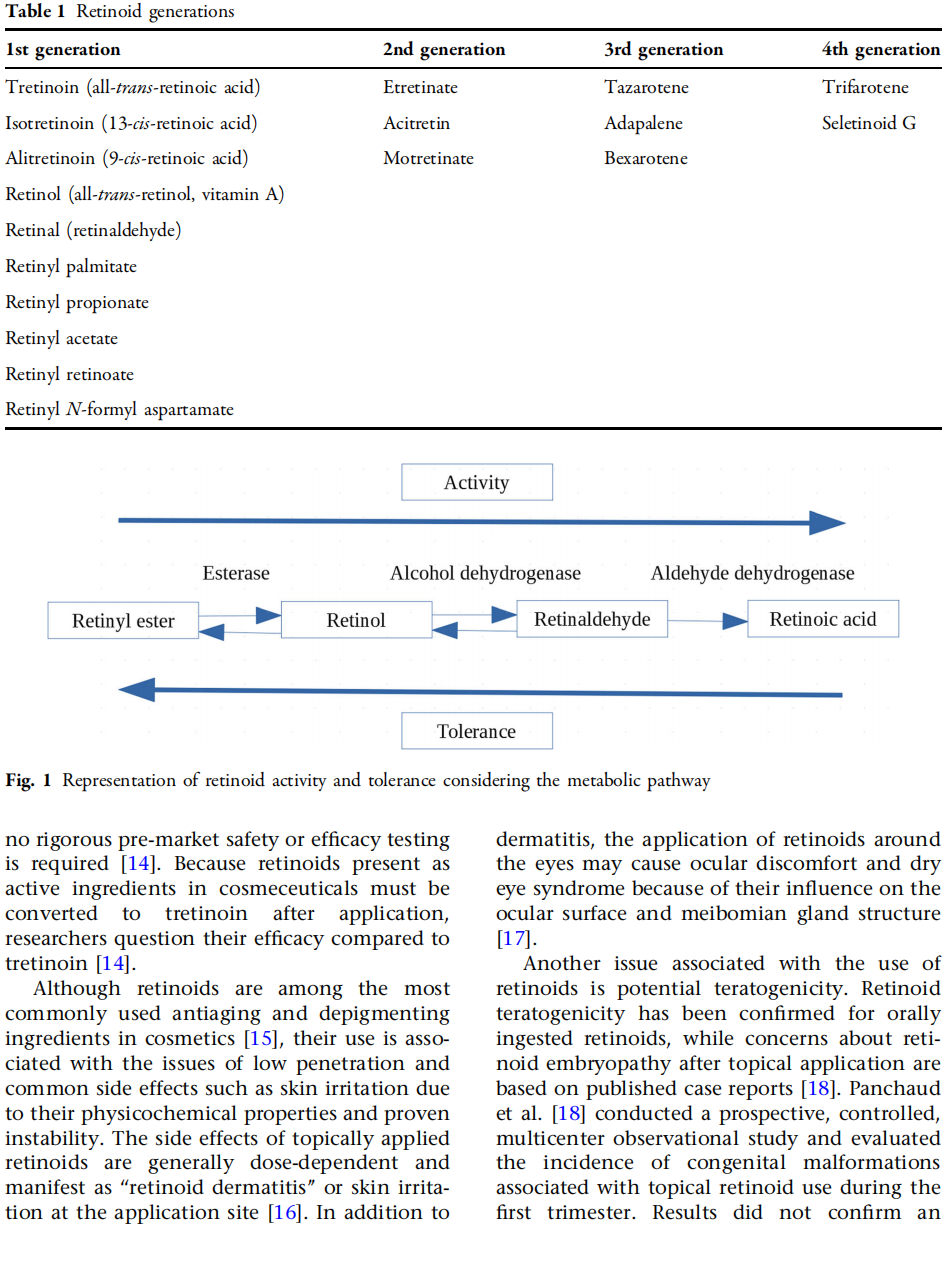
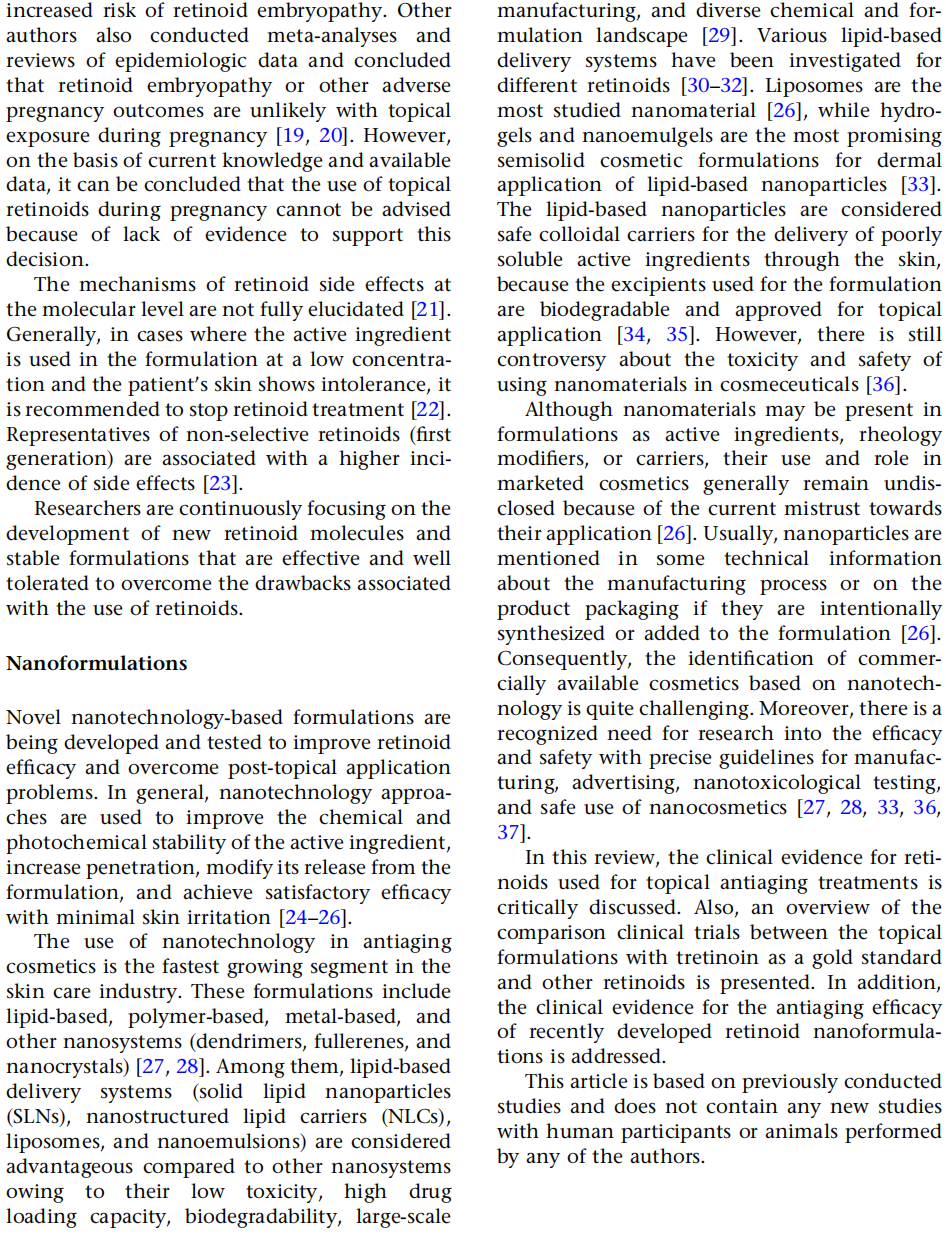
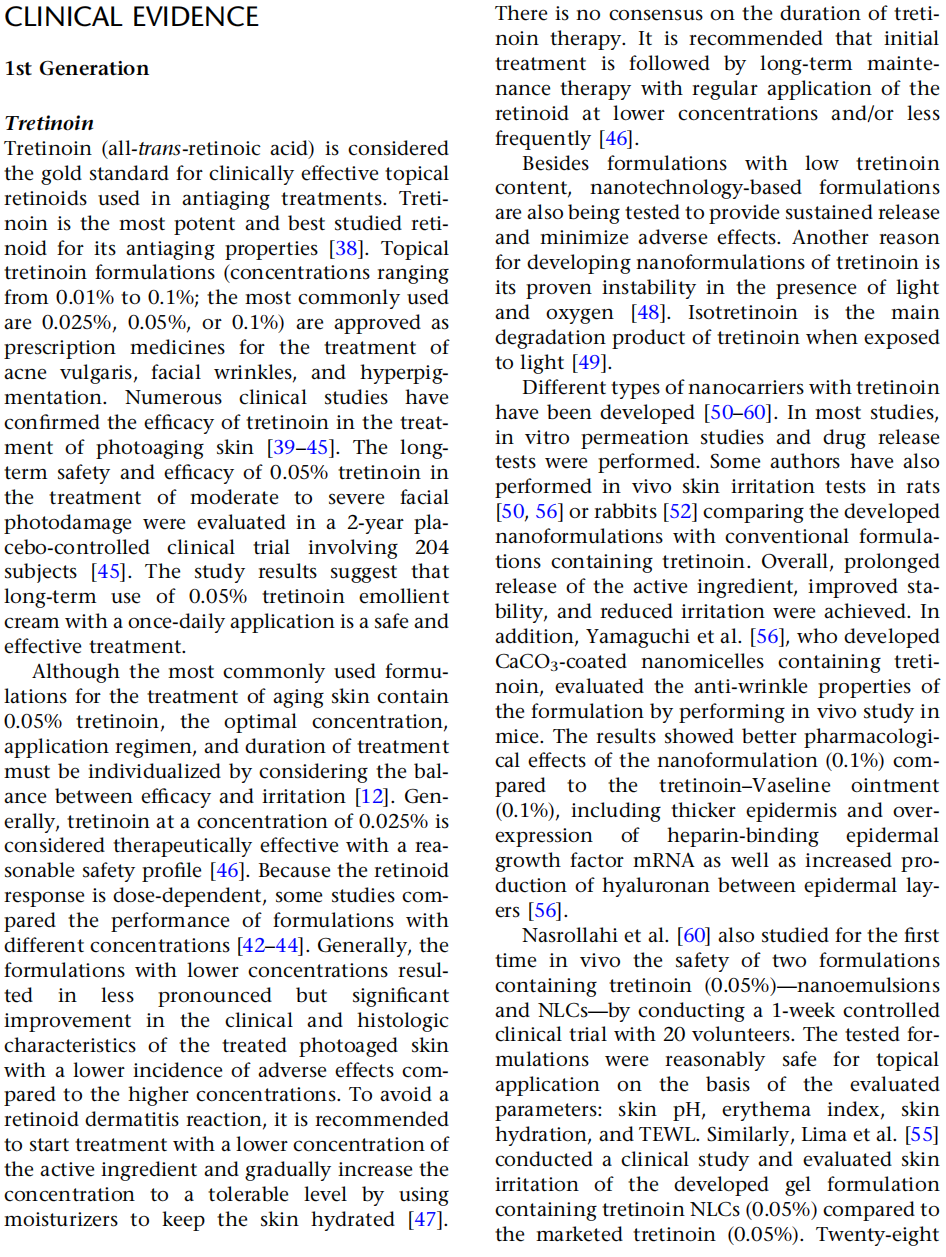

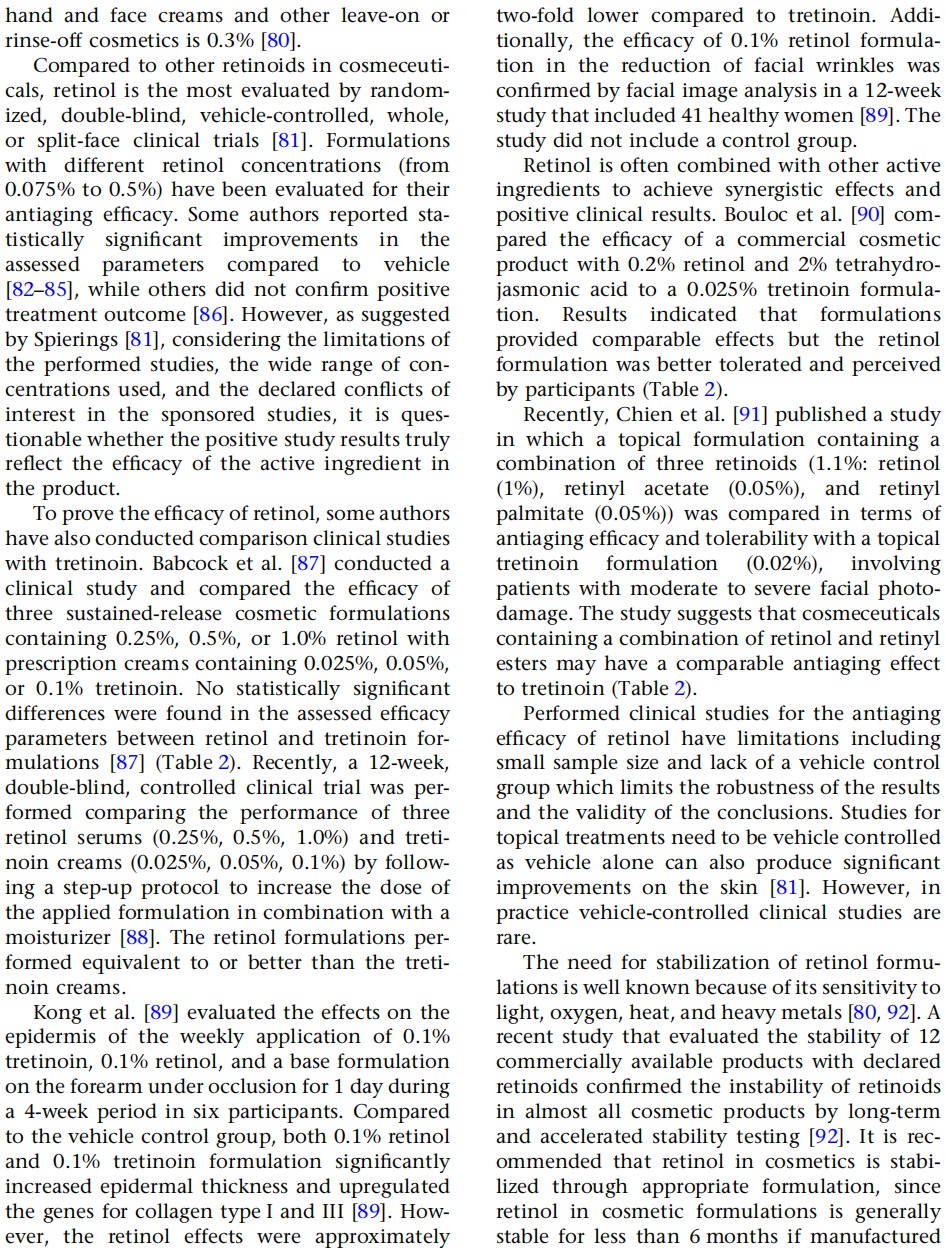
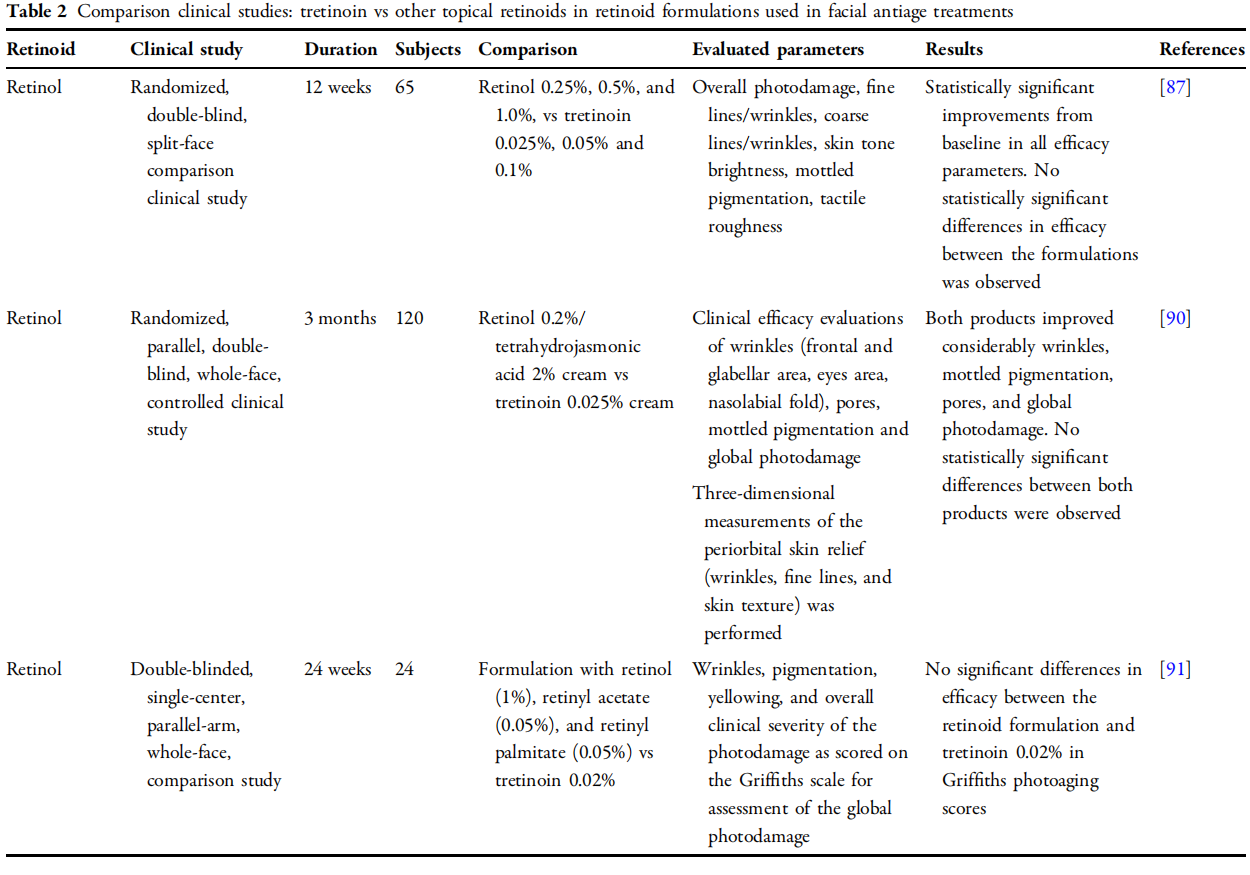
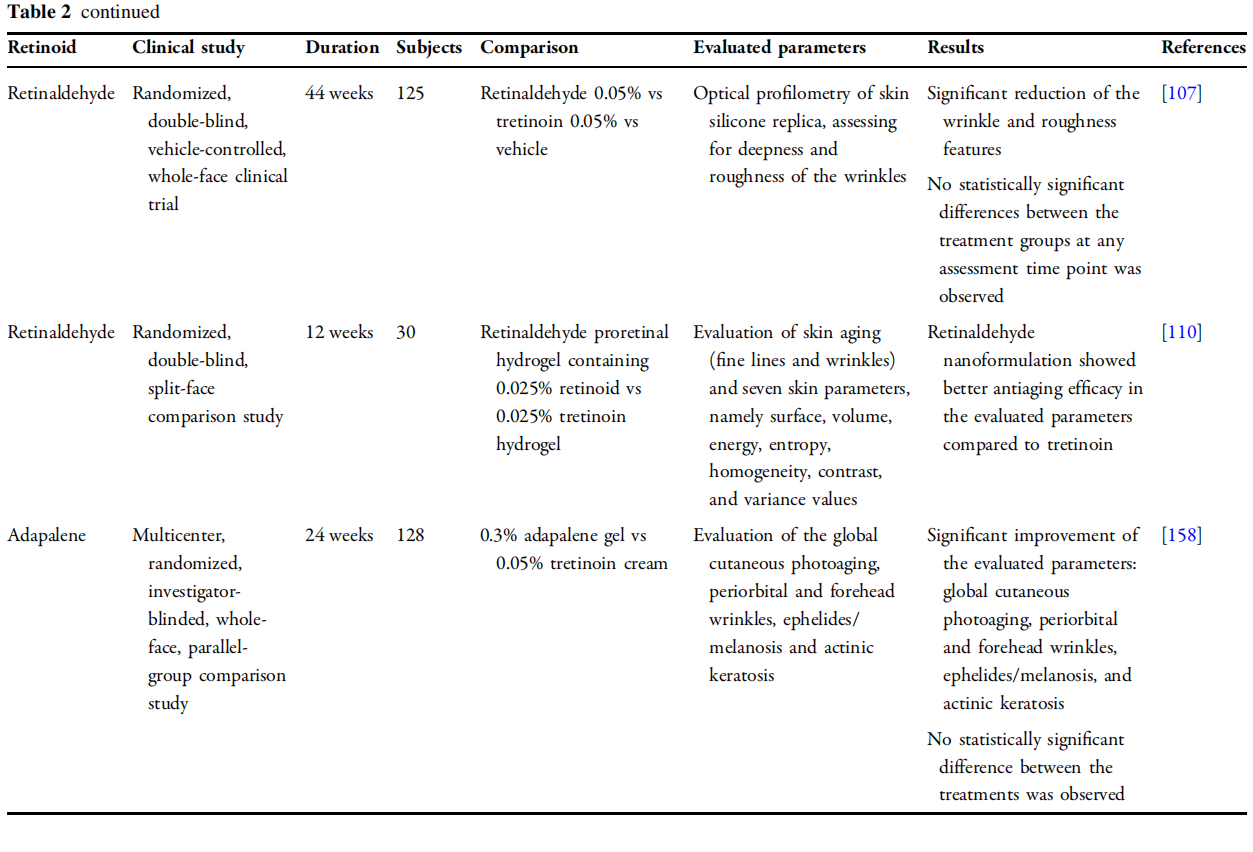

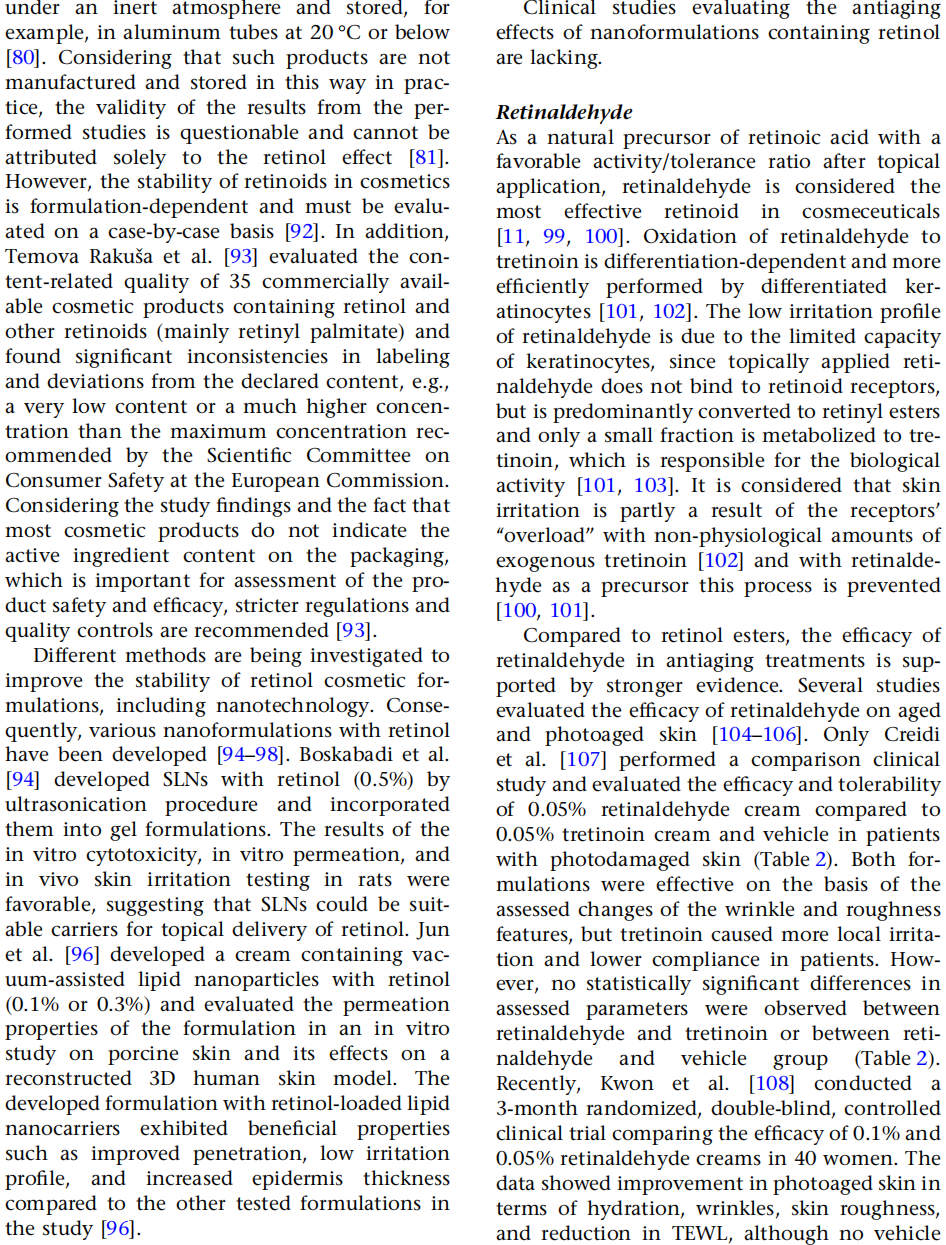
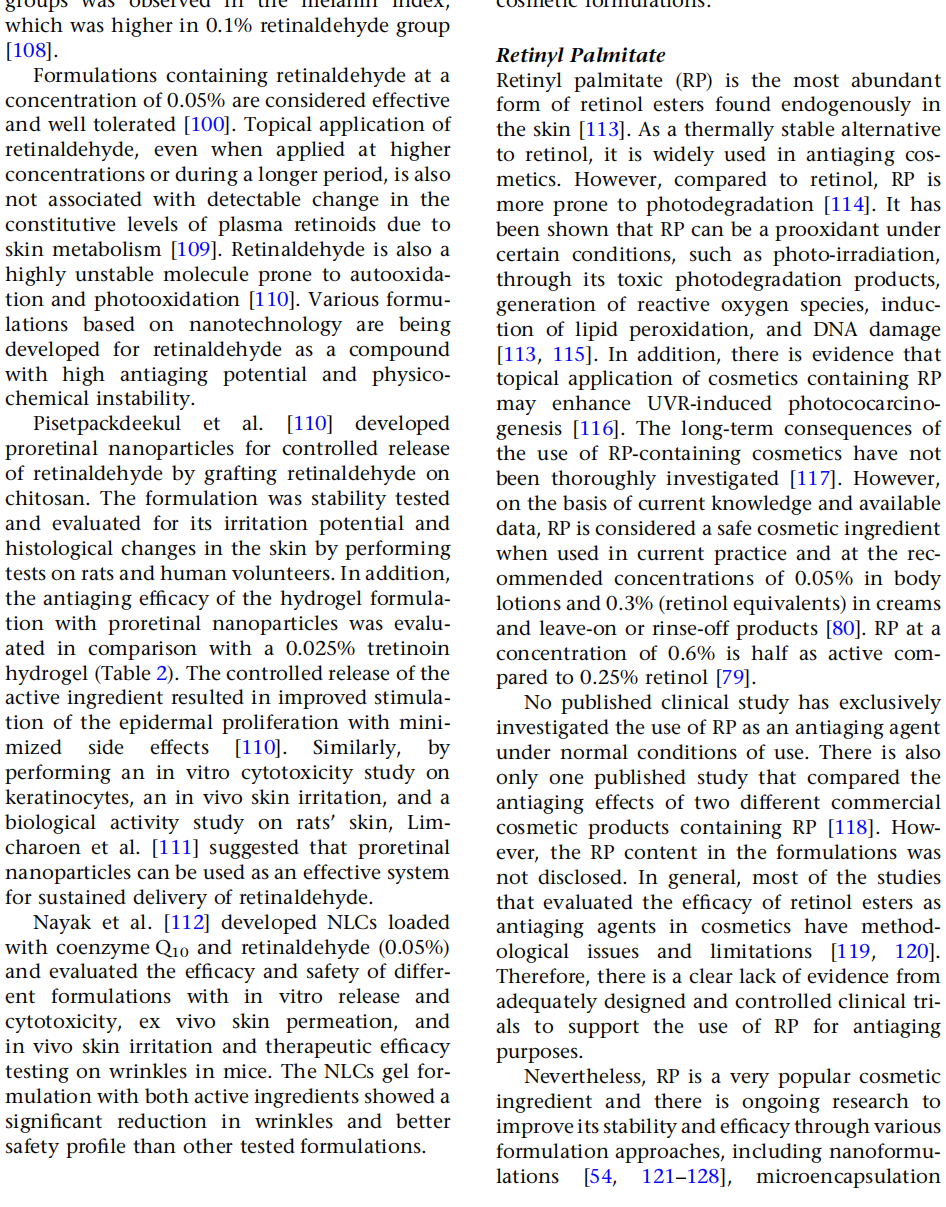
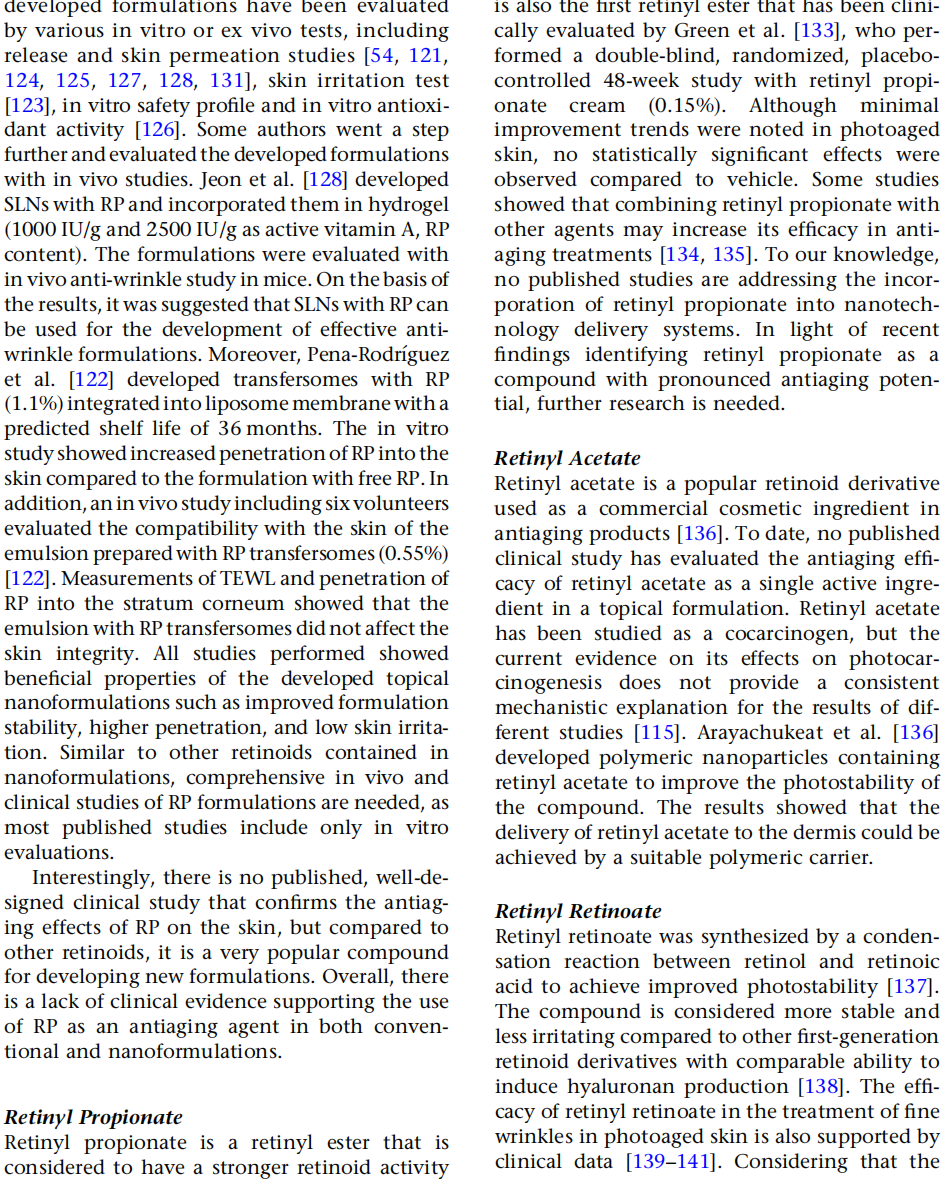
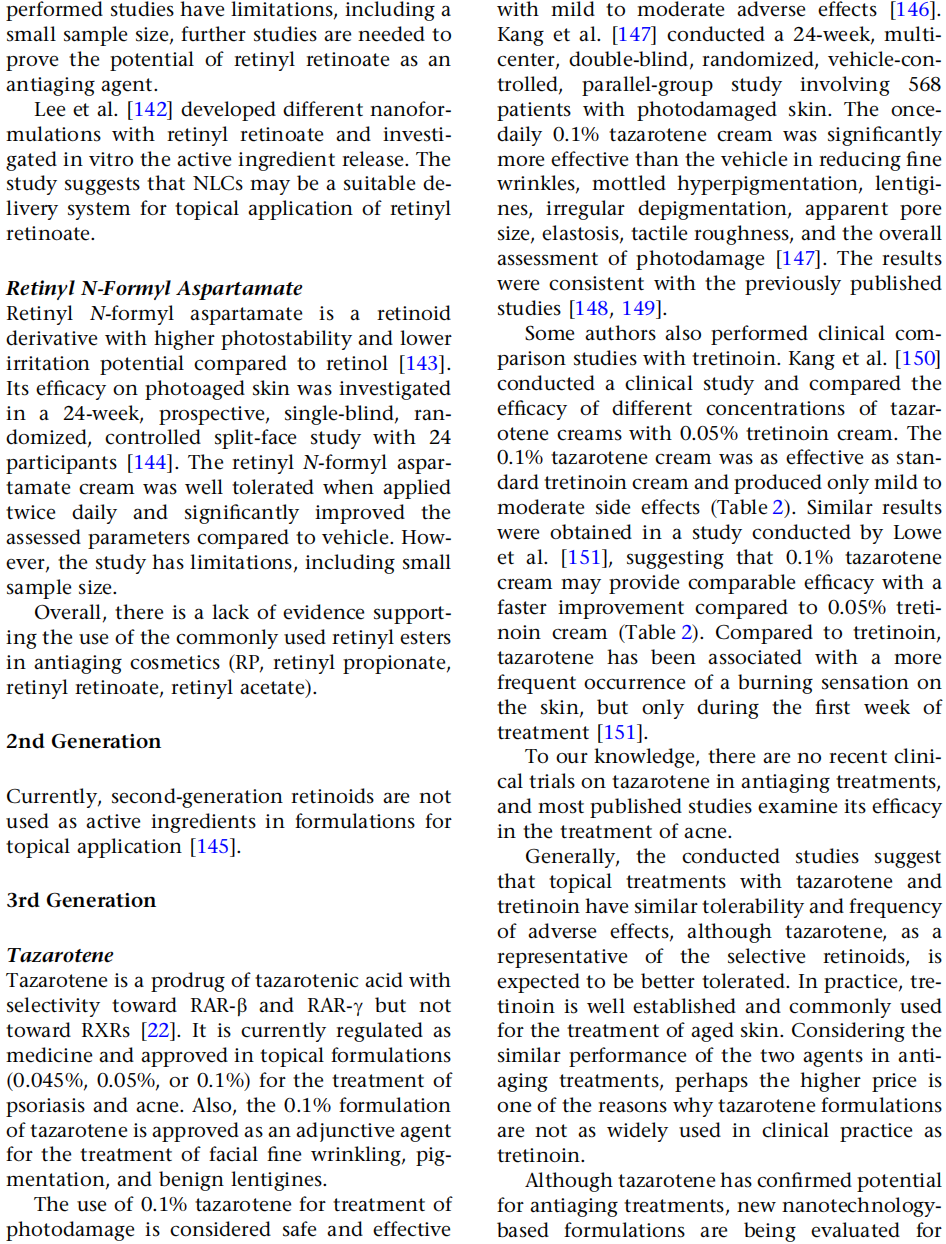
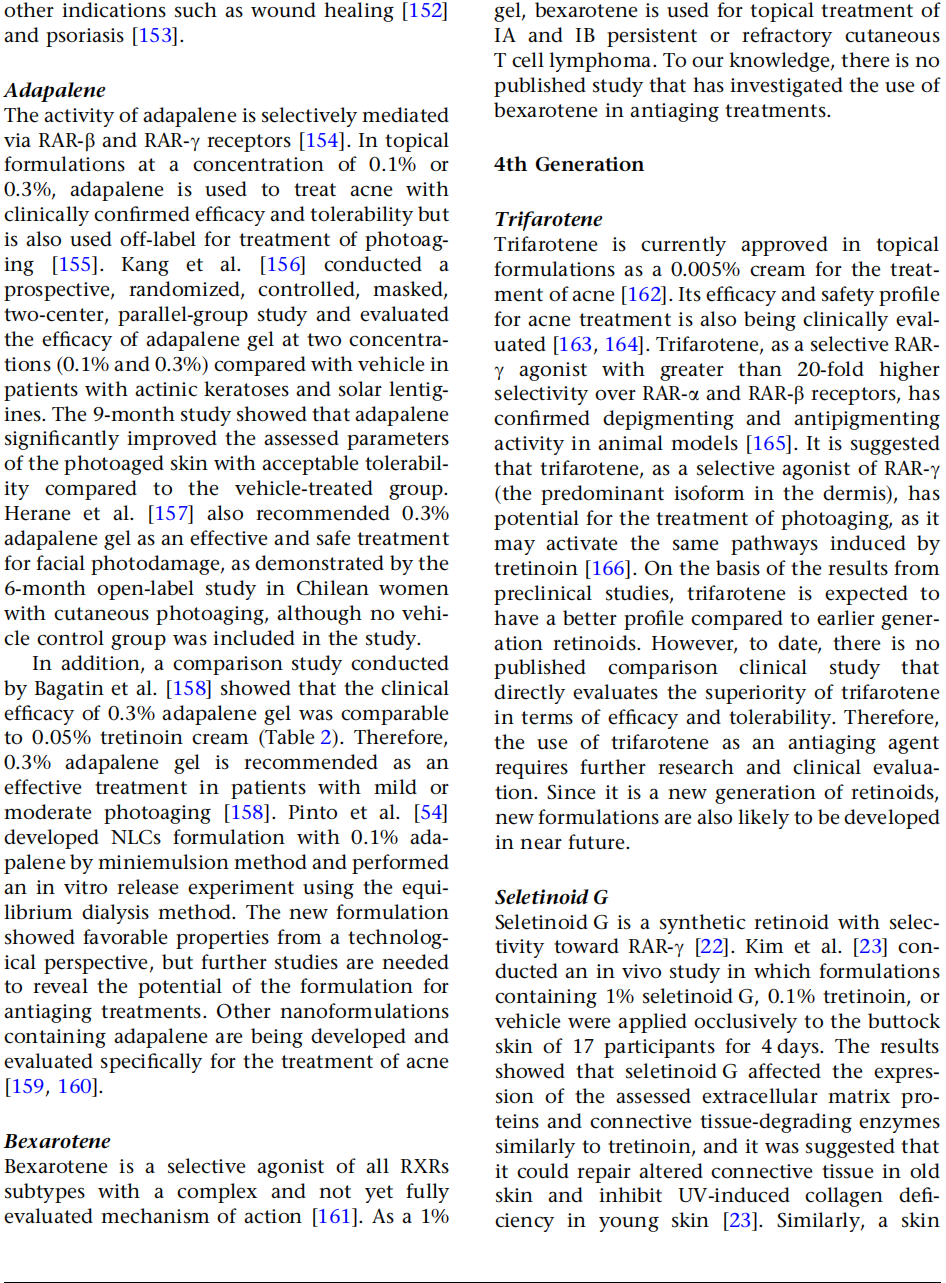
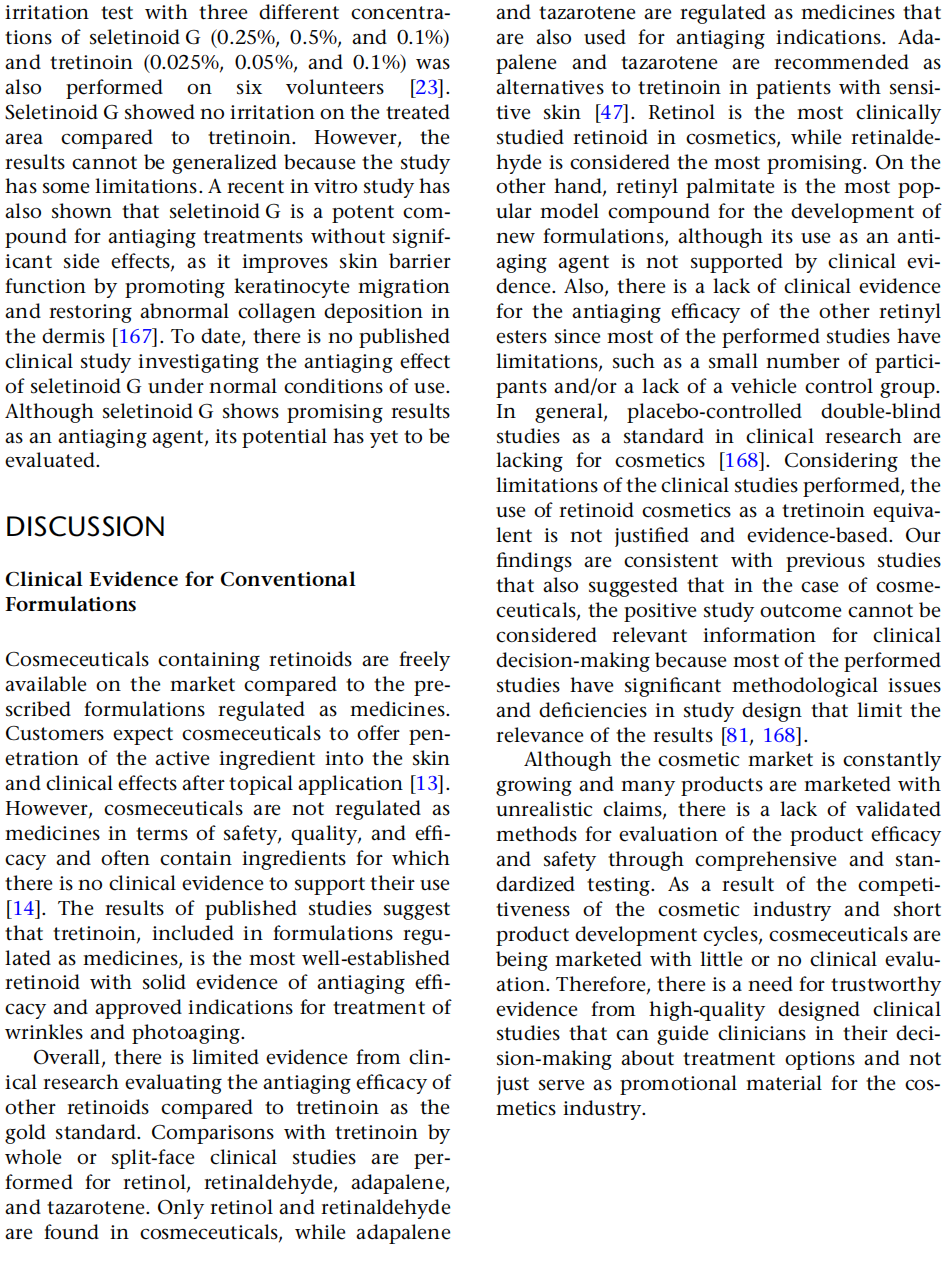
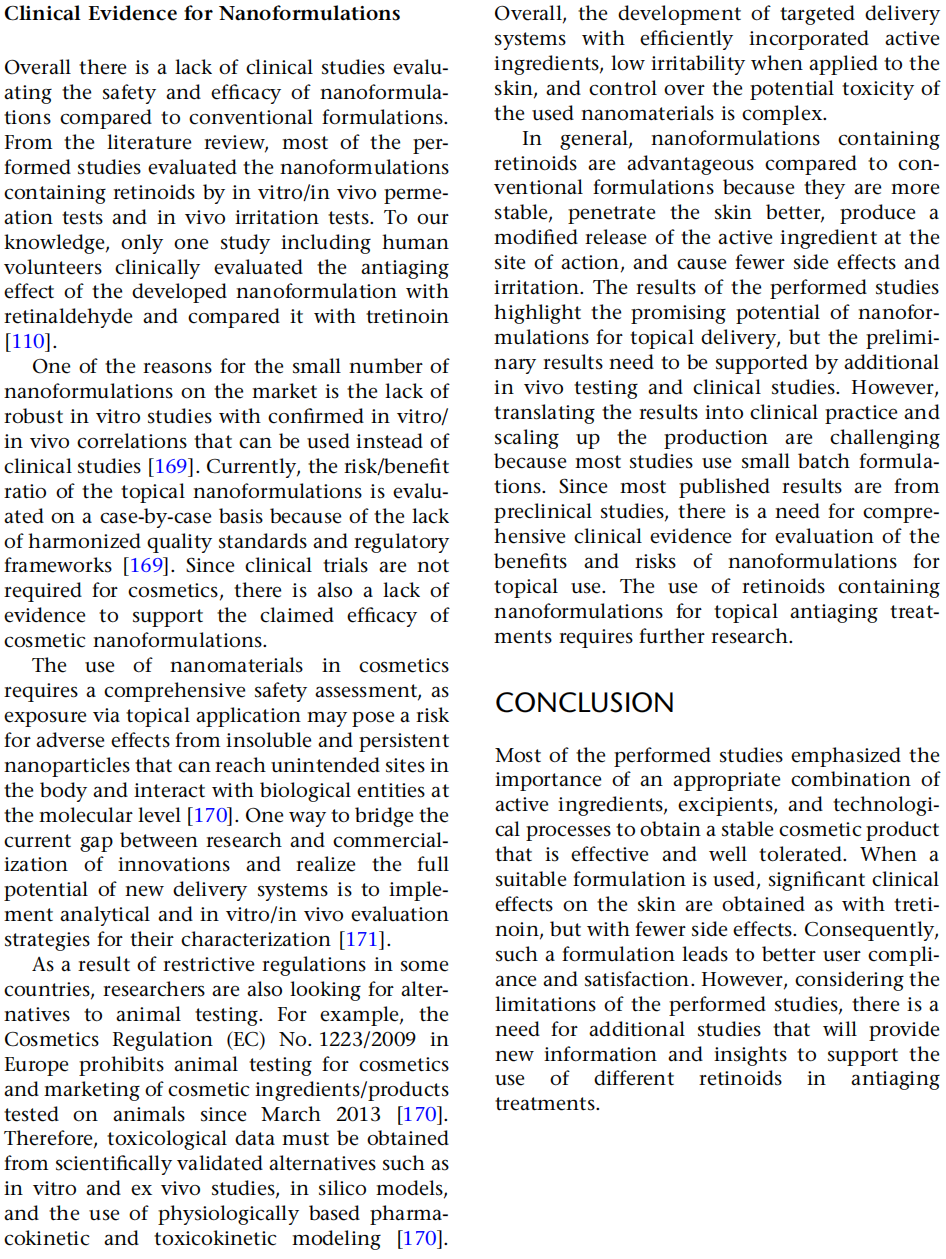
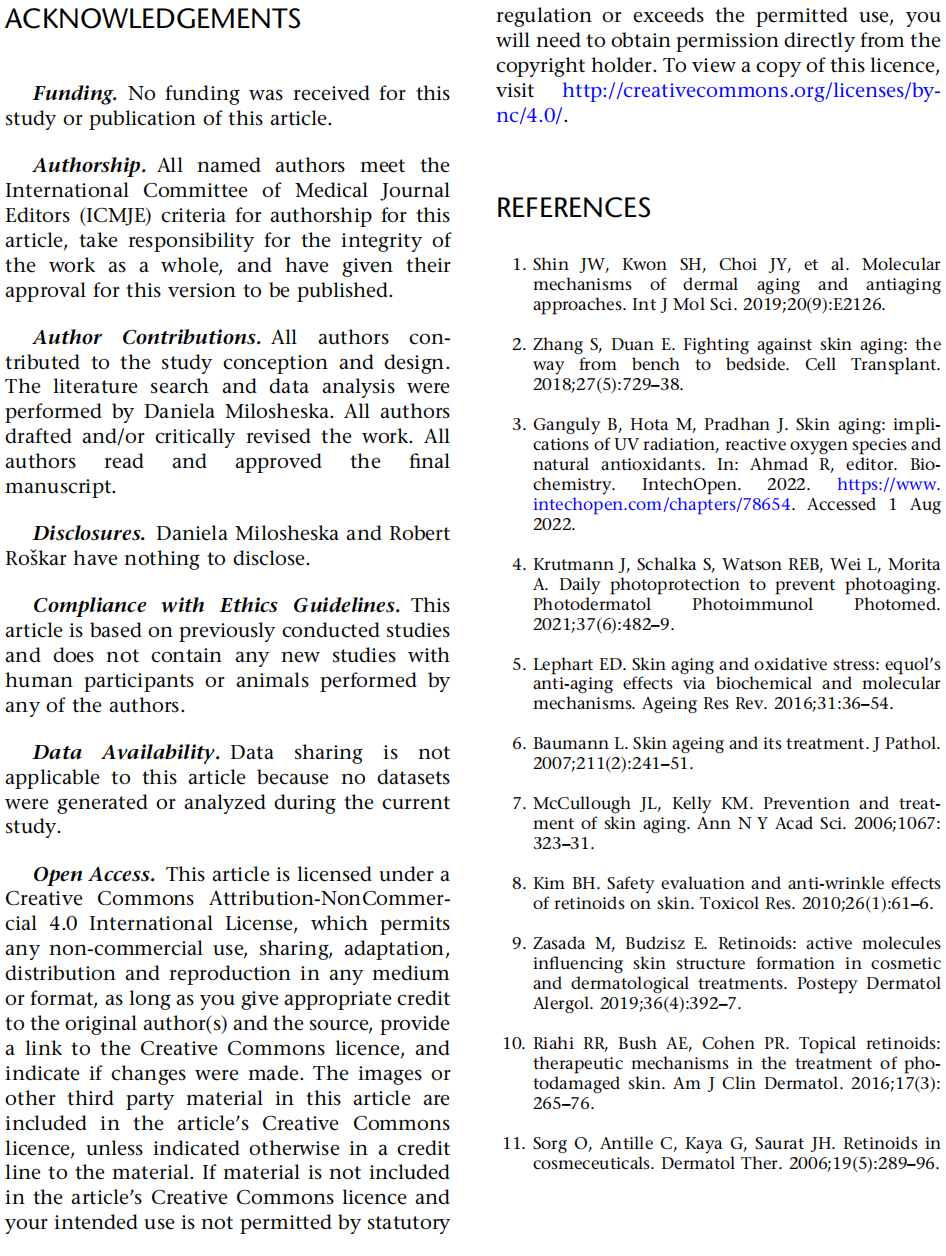
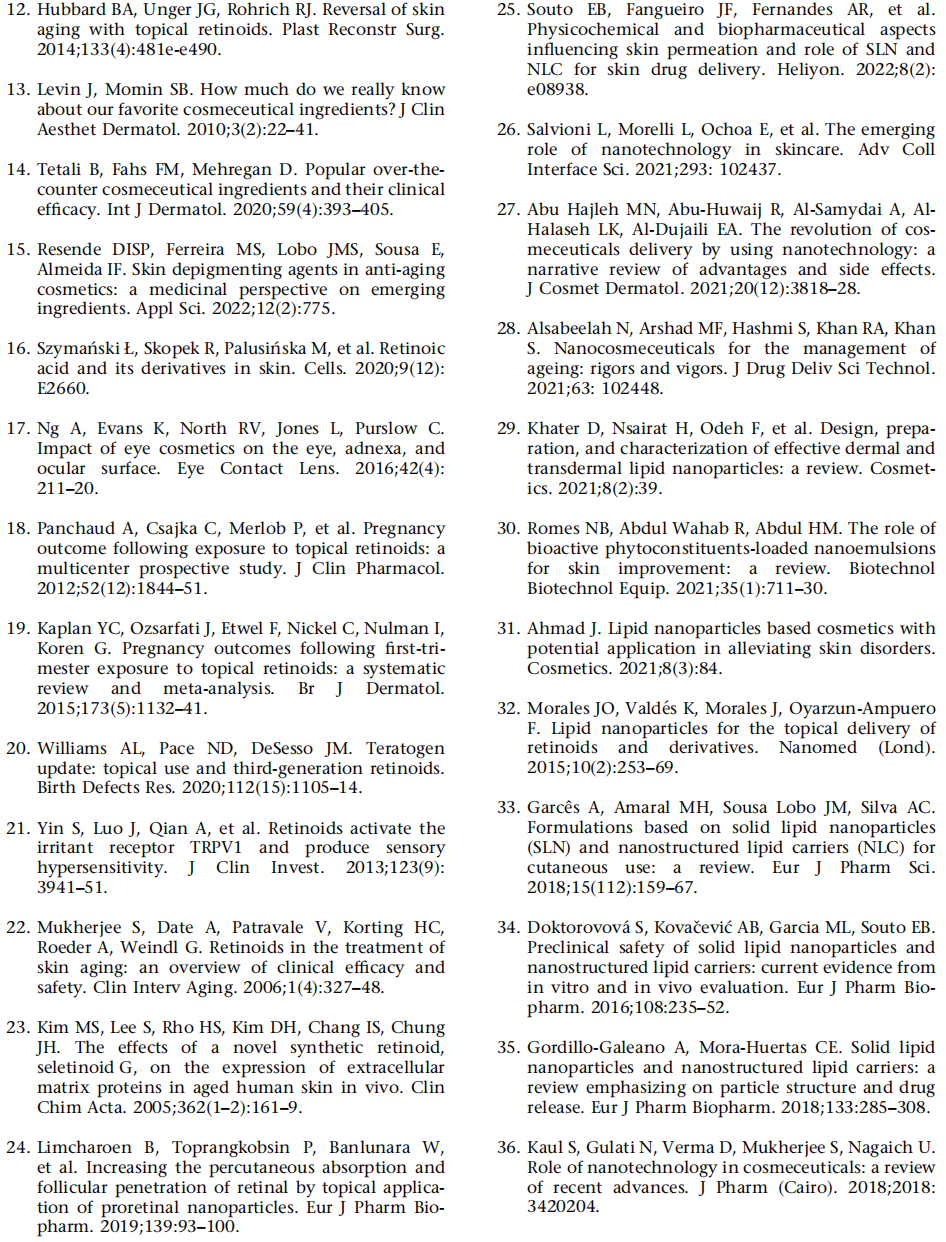

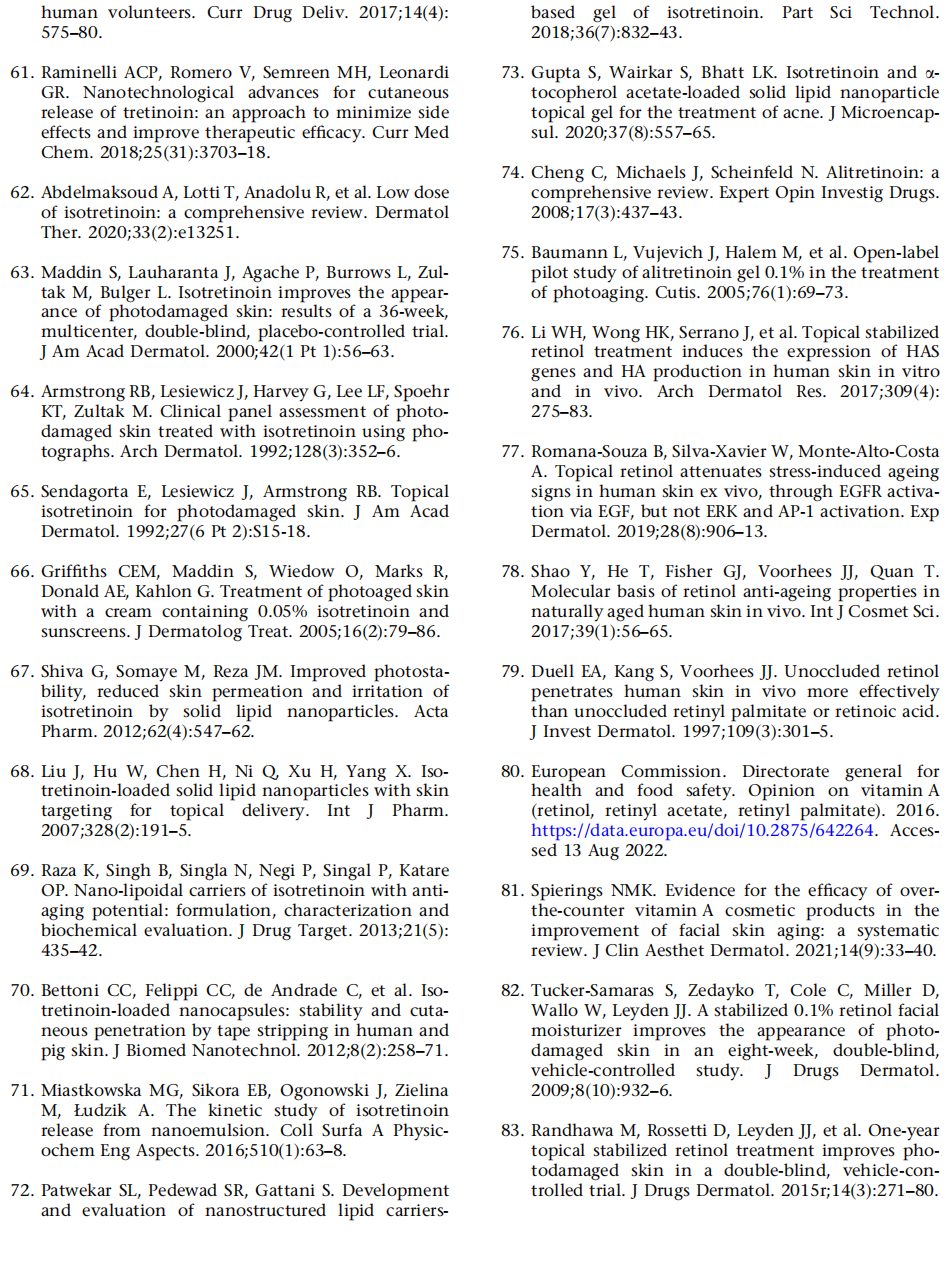
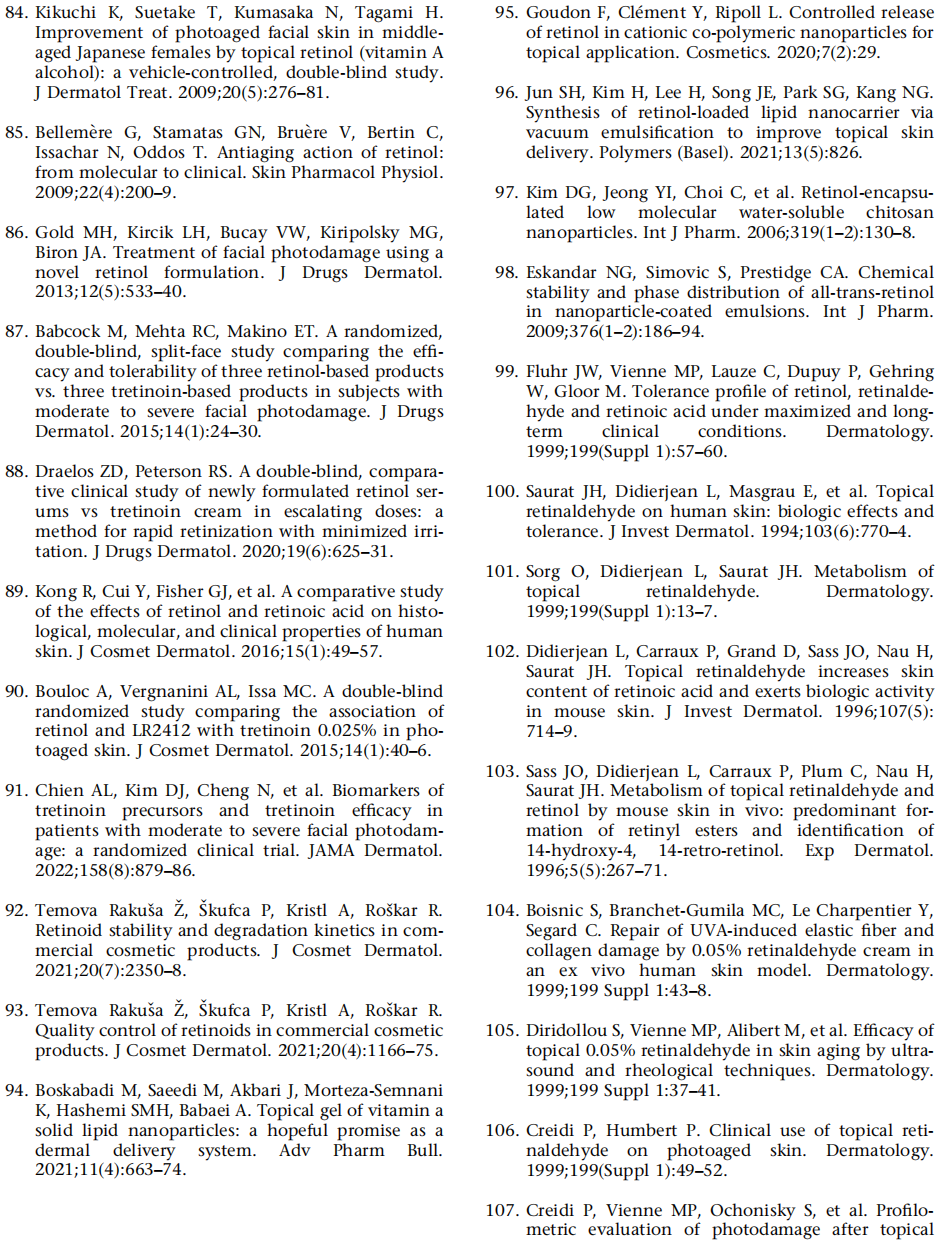
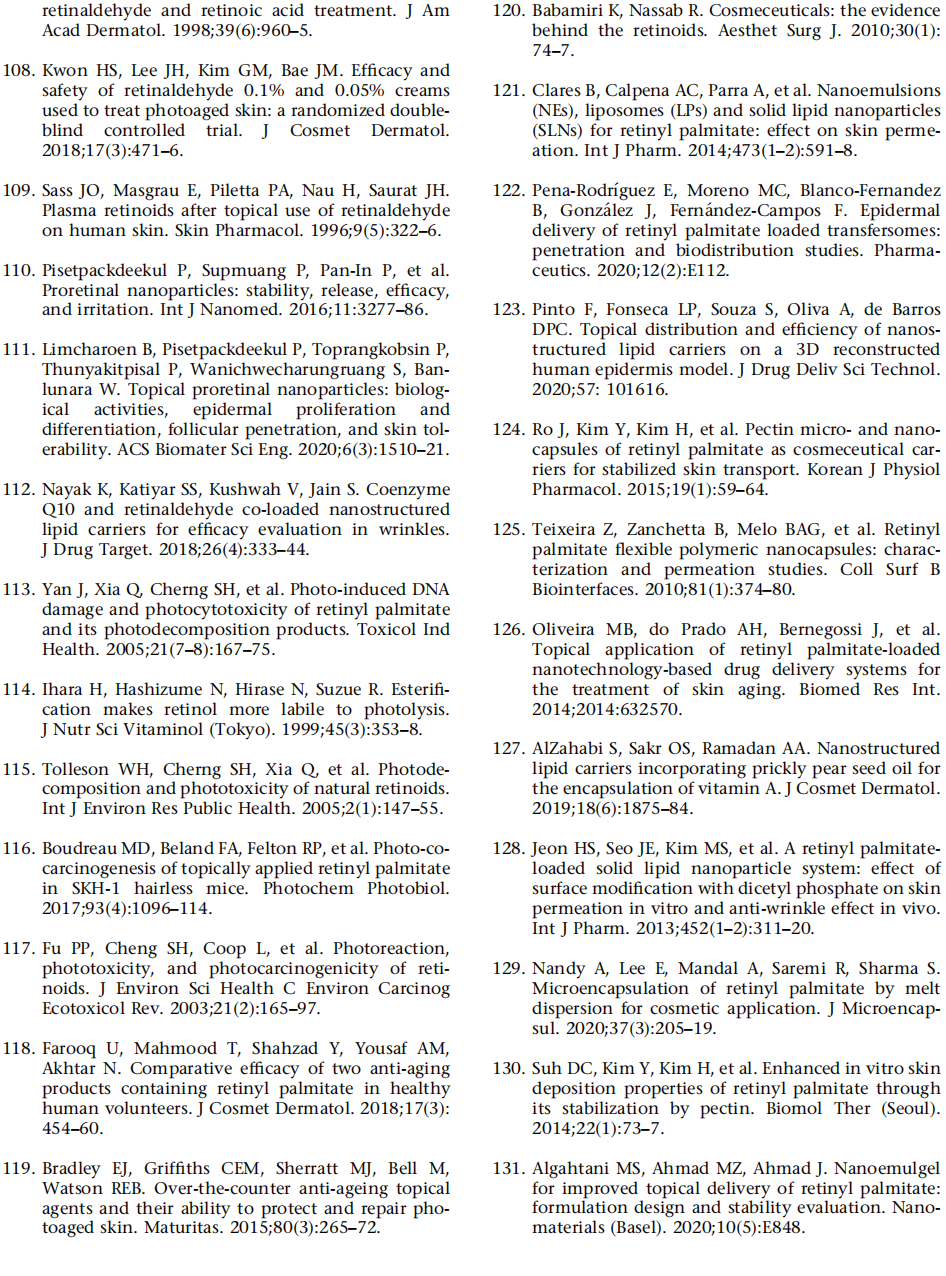
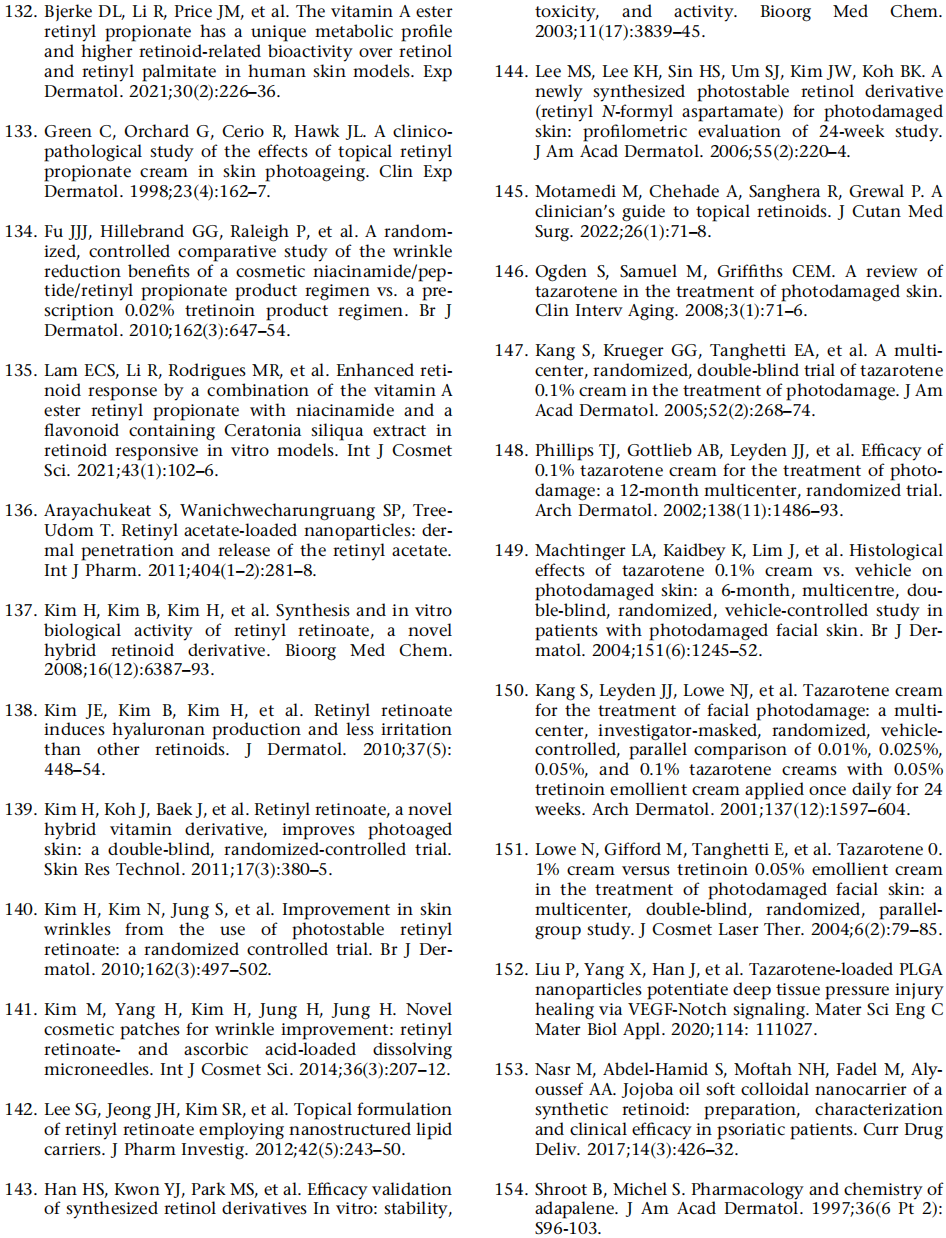
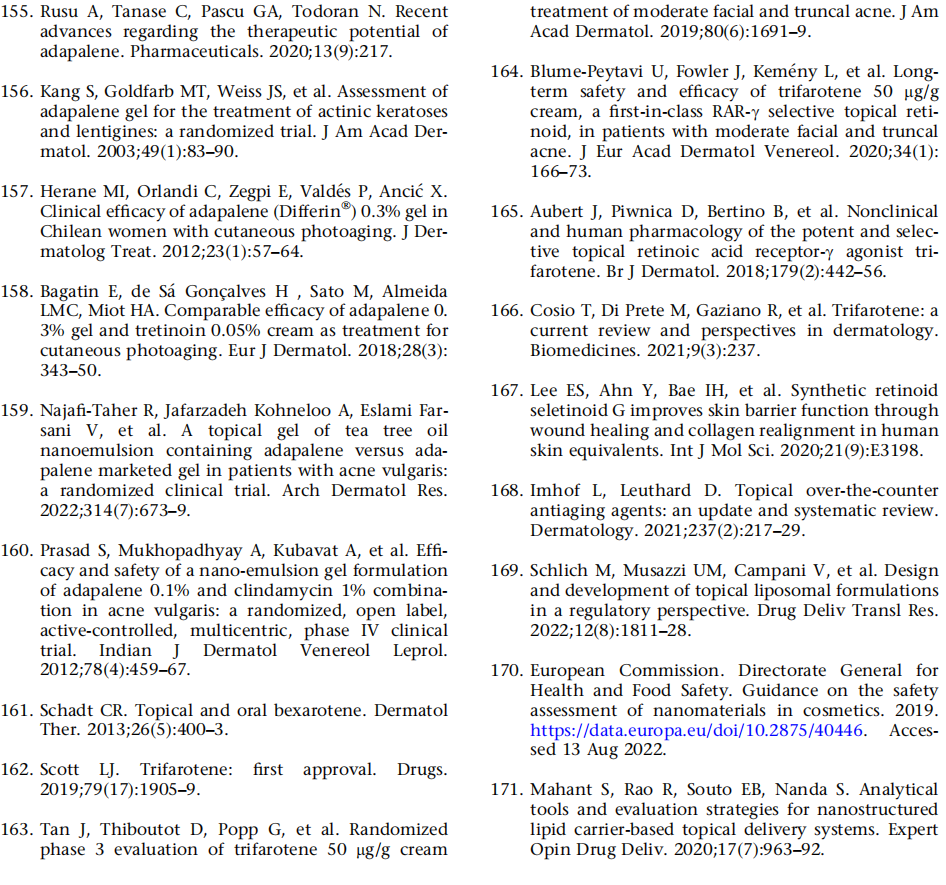
This article is excerpted from the Adv Ther (2022) 39:5351–5375 by Wound World.
Daniela Milosheska . Robert Roskar
Received: August 17, 2022 / Accepted: September 6, 2022 / Published online: October 11, 2022
©The Author(s) 2022
ABSTRACT
Nowadays, numerous skincare routines are used to rejuvenate aging skin. Retinoids are one of the most popular ingredients used in antiaging treatments. Among the representatives of retinoids, tretinoin is considered the most effective agent with proven antiaging effects on the skin and can be found in formulations approved as medicines for topical treatment of acne, facial wrinkles, and hyperpigmentation. Other retinoids present in topical medicines are used for various indications, but only tazarotene is also approved as adjunctive agent for treatment of facial fine wrinkling and pigmentation. The most commonly used retinoids such as retinol, retinaldehyde, and retinyl palmitate are contained in cosmeceuticals regulated as cosmetics. Since clinical efficacy studies are not required for marketing cosmetic formulations, there are concerns about the efficacy of these retinoids.
From a formulation perspective, retinoids pose a challenge to researchers as a result of their proven instability, low penetration, and potential for skin irritation. Therefore, novel delivery systems based on nanotechnology are being developed to overcome the limitations of conventional formulations and improve user compliance. In this review, the clinical evidence for retinoids in conventional and nanoformulations for topical antiaging treatments was evaluated. In addition, an overview of the comparison clinical trials between tretinoin and other retinoids is presented. In general, there is a lack of evidence from properly designed clinical trials to support the claimed efficacy of the most commonly used retinoids as antiaging agents in cosmeceuticals. Of the other retinoids contained in medicines, tazarotene and adapalene have clinically evaluated antiaging effects compared to tretinoin and may be considered as potential alternatives for antiaging treatments. The promising potential of retinoid nanoformulations requires a more comprehensive evaluation with additional studies to support the preliminary findings.
Keywords: Antiaging; Clinical evidence; Cosmeceuticals; Nanoformulations; Retinoids; Retinol; Tretinoin
Key Summary Points
Tretinoin is the retinoid present in medicines for topical application with the strongest clinical evidence of antiaging Tazarotene and adapalene may be considered as tretinoin alternatives for antiaging treatments.
Clinical evidence is lacking for retinoids contained in cosmeceuticals for topical antiaging treatments.
Novel formulations based on nanotechnology are being developed to overcome the major drawbacks of retinoid Further evaluation with in vivo testing and clinical trials are needed to support the preclinical results for the developed nanoformulations containing retinoids.
D. Milosheska INSLAB, Maribor, Slovenia
R. Roskar (&)
University of Ljubljana, Faculty of Pharmacy, Askerceva cesta 7, 1000 Ljubljana, Slovenia
e-mail: 该Email地址已收到反垃圾邮件插件保护。要显示它您需要在浏览器中启用JavaScript。

























This article is excerpted from the Adv Ther (2022) 39:5351–5375 by Wound World.
